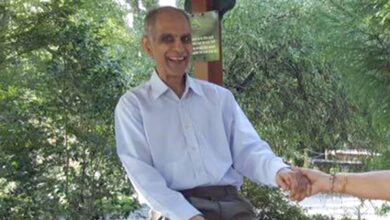OpenAI Whistleblower Suchir Balaji’s final post on AI and Copyright goes viral after sudden death – He saw it coming? – Times of India

The untimely death of former OpenAI researcher Suchir Balaji has thrust a chilling October social media post back into the spotlight. The 26-year-old, found deceased in his San Francisco apartment, had become an unlikely whistleblower in the AI world, warning of ethical complications in the industry he helped build.
Balaji’s story is not one of a disgruntled tech employee, but rather that of a key architect behind one of the most revolutionary technologies of our time — ChatGPT.
Having spent four years at OpenAI, Balaji was instrumental in gathering and organizing data that powered the AI giant’s groundbreaking chatbot. But as the AI boom exploded, so did Balaji’s concerns, and his shift from tech innovator to outspoken critic was swift and startling.
When ChatGPT was launched in late 2022, Balaji’s perspective began to shift dramatically. Initially, he believed that OpenAI and other tech companies had the right to use vast amounts of web data for AI development. However, as the scale of the company’s operations grew, so did his unease about the ethical implications, especially concerning copyright law.
His final post on X (formerly Twitter) directly addressed his growing skepticism about “fair use” as a legal defense for generative AI products, something that he feared could have significant consequences for the future of content creators.
In the tweet, Balaji shared his participation in a New York Times story about fair use and generative AI, explaining his position: “Fair use seems like a pretty implausible defense for a lot of generative AI products, for the basic reason that they can create substitutes that compete with the data they’re trained on.” Balaji, who initially lacked knowledge in copyright law, had become deeply interested in the topic as he observed numerous lawsuits filed against AI companies. His growing concern led him to write a detailed blog post outlining his reasons for skepticism, urging machine learning researchers to delve into the complexities of copyright laws.
“I was at OpenAI for nearly 4 years and worked on ChatGPT for the last 1.5 of them,” Balaji wrote. “I initially didn’t know much about copyright, fair use, etc. but became curious after seeing all the lawsuits filed against GenAI companies.” In his post, he stressed that the issue of fair use in generative AI was much larger than any single company or product, urging a broader conversation on the topic within the AI community.
Balaji’s warnings carry weight, not only because of his insider knowledge as someone who helped shape ChatGPT but also because of the broader implications he foresaw. As AI technologies like ChatGPT evolve, they can replicate and even replace original content, raising concerns about how such advancements could impact the livelihoods of creators and the creative industries as a whole. Balaji emphasized that researchers and developers needed to better understand the laws surrounding AI and intellectual property—something that, tragically, seems even more crucial now in light of his passing.
His tweet and blog post, while originally niche discussions within the tech world, have now taken on new significance following his death. The viral spread of Balaji’s final words has reignited debates about AI ethics, copyright, and the future of creativity in an increasingly AI-driven world.




